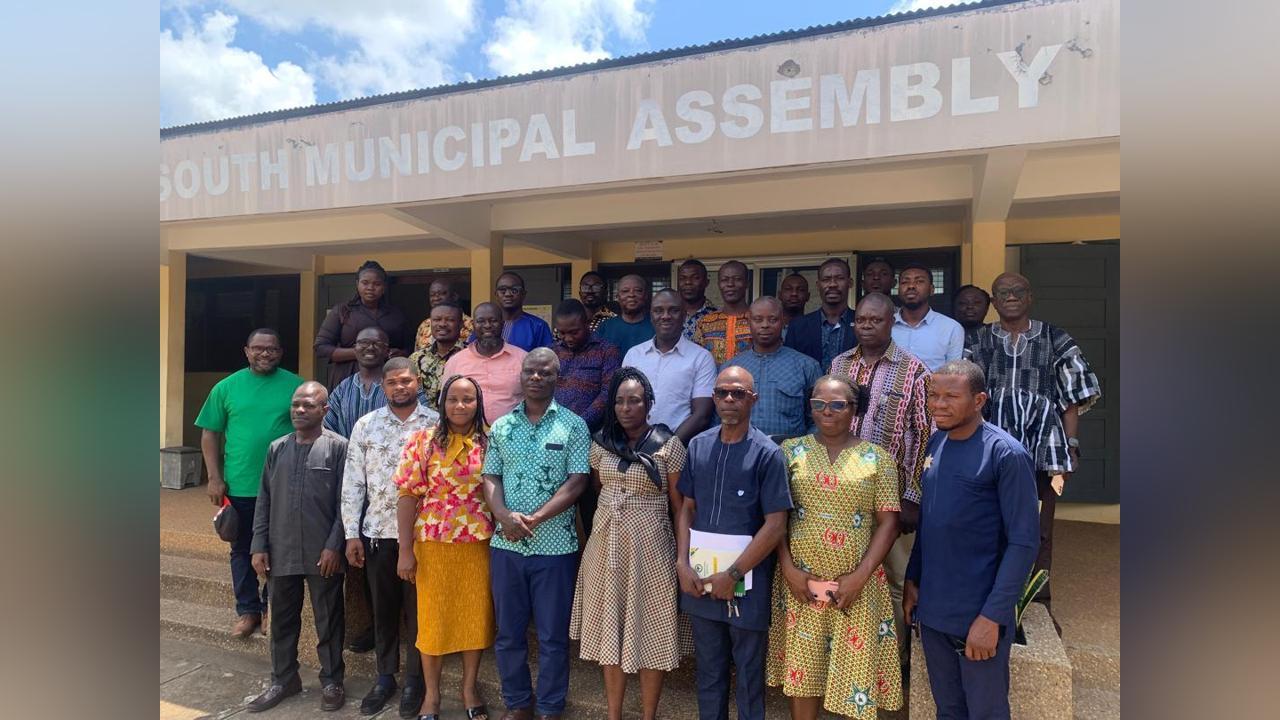Africa-Press – Ghana. A three-day stakeholders’ workshop on decentralised plans for achieving Open Defaecation Free (ODF) and Safely Managed Sanitation (SMS) Planning Framework for the country has commenced in Akatsi in the Volta Region
It being organised the Office of the Head of Local Government Service in collaboration with the United Nations Children’s Fund (UNICEF) and Nkum Associates.
The encounter, which formed part of the nation’s efforts to eradicate open defecation and enhance sanitation coverage, continued the development process that commenced in 2023, during which field assessments were conducted in MMDAs.
This was disclosed in an opening remark by Mr Emmanuel Ikpe Quacou, the Akatsi South Municipal Coordinator on Monday on behalf of the Municipal Chief Executive for the area.
“As part of the development process which commenced in 2023, field assessment has been conducted in ten MMDAs. Based on the findings, the consulting team has proposed targeted interventions and strategies addressing key focus areas within the prototype phase of the District Planning Framework.”
He indicated that the workshop was necessary which formed part of the proposed testing processes.
Akatsi South has been selected as one of the three beneficiary areas including Kpandai and Tamale for the exercise.
The MMDAs, according to the organisers, have been chosen to represent a District Assembly (DA), a Municipality, and a Metropolitan Assembly respectively, to assess the effectiveness of the interventions across the different levels of local governance.
Facilitators during the period would expose participants to key issues such as, understanding the Sustainable Change Model, Snapshot of outcomes of MMDA Assessment, Draft District Planning Framework, Process and Strategies for ODF Planning, incorporating new interventions into planning, implementation, reporting, M&E, and the Learning Process of MMDAs.
Participants, among others, would be expected to gain an understanding of the outcome of the assessment phase and development of focus areas as prototypes, appreciate focus areas as a lens for strengthening systems and processes for developing ODF Plans, explanation of the design thinking process.
Participants would also be capacitated to understand and use the sustainable change model as a frame for sustaining change in the planning and implementation process.
The rest include using the Sustainable Change Model; participants introduce incremental changes into the process for developing and planning for ODF; Operational, and Policy implementation Strategic changes.
Over 31 selected participants from key institutions and organisations are expected to dialogue on proposed targeted intervention and strategies on addressing key focus areas within the prototype phase of the District Planning Framework.
For More News And Analysis About Ghana Follow Africa-Press







